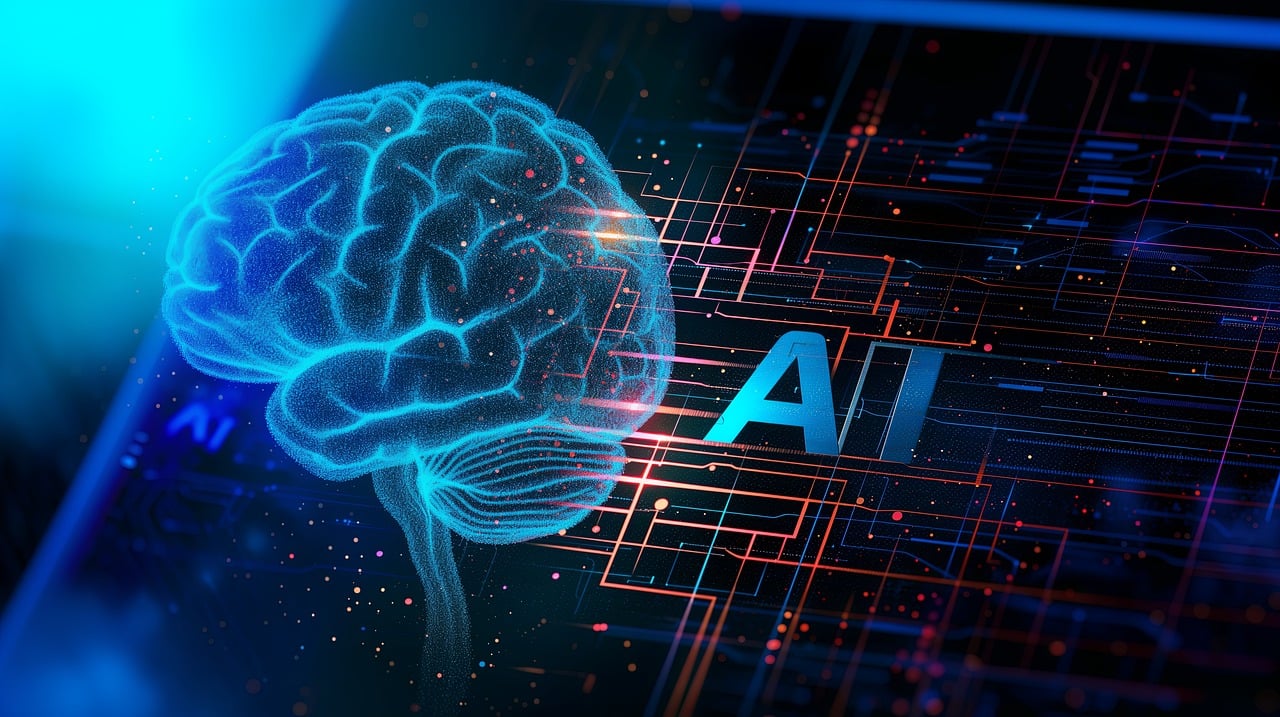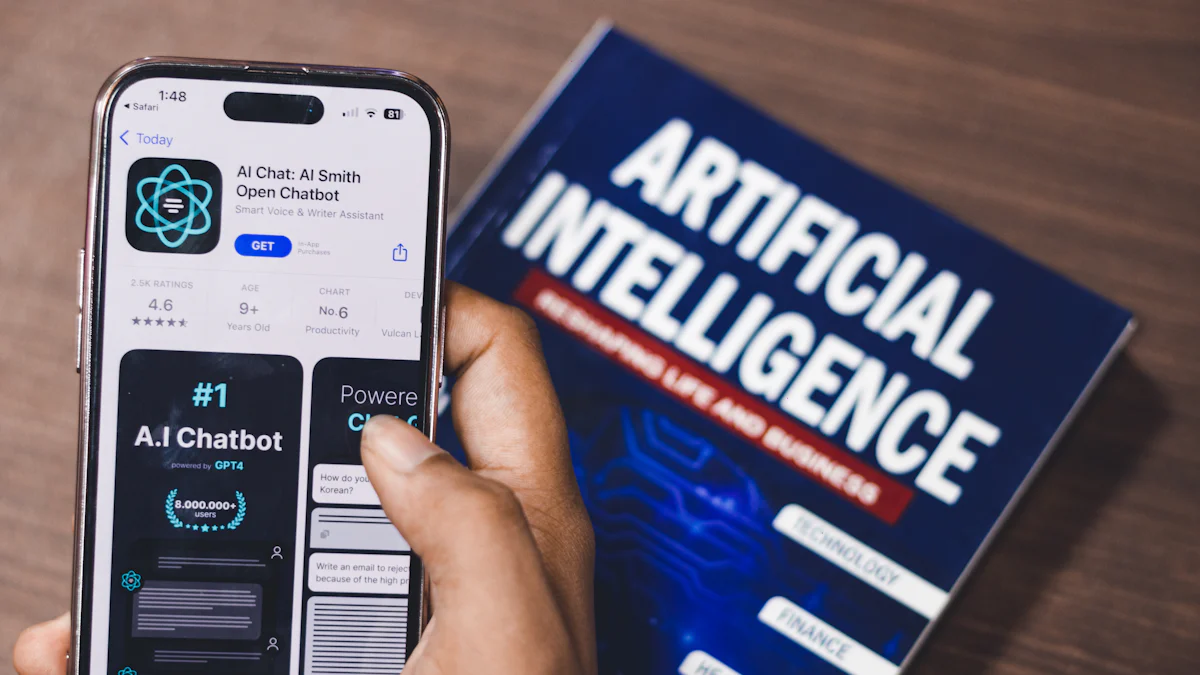How AI Agent-Based Apps Differ from Traditional AI Apps

AI apps have revolutionized how you interact with technology. These applications adapt and learn, offering personalized experiences. However, they often focus on specific tasks, limiting their scope. In contrast, AI agent builders stand out by creating applications that operate autonomously to achieve defined goals. They evaluate their current state, plan actions, and adjust strategies to meet objectives. This goal-driven approach makes them highly effective in dynamic environments.
Industries increasingly rely on AI agent-based apps. Over 72% of businesses now use AI solutions, with many exploring next-generation technologies. These apps enhance productivity, improve decision-making, and transform workflows across sectors like healthcare, customer service, and software development.
Differences Between AI Apps and AI Agent-Based Apps
Defining AI Apps
Characteristics and examples of AI apps
AI apps are software applications that use artificial intelligence to perform specific tasks. These apps rely on machine learning models to analyze data, make predictions, and provide insights. They excel in handling structured tasks and delivering personalized user experiences. For example, in healthcare, AI apps assist with medical imaging and clinical decision-making. In education, they automate grading and create personalized learning plans. Industries like automotive and travel also benefit from AI apps through predictive maintenance and real-time travel updates.
The table below highlights the key features of AI apps compared to traditional applications:
Feature | Traditional apps | AI apps |
|---|---|---|
Adaptability | Fixed and inflexible; requires manual updates | Continuously learns and adapts to new data |
Automation | Requires user input | Automates tasks and provides recommendations |
Personalization | Limited customization | Tailors interactions to individual users |
Complexity | Handles simple tasks | Manages complex scenarios like natural language processing |
Learning | Cannot improve autonomously | Learns and enhances performance through machine learning algorithms |
Decision Making | Operates within set parameters | Uses AI algorithms to make informed decisions |
These characteristics make AI apps valuable tools for improving efficiency and decision-making across industries.
Defining AI Agents
Key features of AI agents: autonomy, adaptability, and goal orientation
AI agents go beyond traditional AI apps by operating autonomously to achieve specific goals. They perceive their environment, make decisions, and take actions without constant human intervention. Unlike static AI apps, agents adapt their behavior based on new data and changing circumstances. For instance, a robotic vacuum cleaner like Roomba autonomously cleans floors, adjusting its path to avoid obstacles.
AI agents also exhibit goal-oriented behavior. They plan actions, execute tasks, and refine their strategies to achieve objectives. This makes them suitable for dynamic environments where adaptability is crucial. Examples include project management software that optimizes task scheduling and autonomous vehicles that make real-time decisions to navigate traffic.
Comparing AI Apps and AI Agents
Scope and functionality
AI apps focus on specific tasks, such as analyzing medical images or recommending products. Their scope is limited to predefined functions. In contrast, AI agents operate with broader functionality. They integrate tools, maintain session history, and interact with external systems to achieve complex goals. For example, an AI agent in project management not only schedules tasks but also reallocates resources based on progress.
Decision-making and adaptability
AI apps rely on pre-programmed algorithms for decision-making. They perform well in structured scenarios but struggle with unstructured data. AI agents, however, excel in decision-making by using cognitive architectures like ReAct or Chain of Thought. These frameworks enable agents to reason, act, and adapt iteratively. For instance, autonomous vehicles use real-time data to make decisions, ensuring safe navigation even in unpredictable conditions.
Unique Features of AI Agent-Based Apps

Autonomy
Independent operation and decision-making
AI agents stand out due to their ability to operate independently. They make decisions without requiring constant human oversight, which allows them to function effectively in dynamic environments. For example, utility-based agents like dynamic pricing systems adjust prices in real-time based on demand and competition. Similarly, goal-based agents such as robotic vacuum cleaners autonomously clean floors, avoiding obstacles and optimizing their paths.
These agents embody the principles of autonomy by processing data and adjusting their actions in real-time. This self-reliance enables them to achieve specific objectives without external intervention. Whether managing traffic systems or controlling smart grids, AI agents demonstrate independence by analyzing their environment and making informed decisions. Their autonomous nature makes them indispensable in scenarios requiring minimal human involvement.
Adaptability
Learning and evolving with new data
AI agents excel in adaptability, a feature that sets them apart from traditional AI apps. They use machine learning and reinforcement learning to extract patterns and insights from data. This capability allows them to refine their strategies and improve performance over time. For instance, self-driving cars adapt to changing road conditions by analyzing live data and adjusting their navigation in real-time.
Learning agents also mimic human learning processes by interacting with their environment. They gather feedback, refine their decisions, and handle unexpected scenarios with increasing competence. Fraud detection systems illustrate this adaptability by analyzing transactional data to identify anomalies and adjust their algorithms based on new patterns. This ability to evolve ensures that AI agents remain effective in dynamic and unpredictable environments.
Goal-Oriented Behavior
Problem-solving and achieving objectives
AI agents operate with a clear sense of purpose, planning and executing actions to achieve predefined goals. They evaluate their current state, compare it to their objectives, and adjust their actions accordingly. For example, project management software optimizes task scheduling and resource allocation to ensure timely project completion.
Goal-oriented agents also solve complex problems by leveraging large language models for planning and decision-making. Autonomous vehicles exemplify this by navigating traffic and making real-time decisions to ensure passenger safety. These agents demonstrate competence in achieving well-defined objectives, making them valuable in industries like energy management, healthcare, and logistics. Their problem-solving capabilities highlight their effectiveness in addressing real-world challenges.
Continuous Learning
Feedback loops and machine learning integration
Continuous learning is a defining feature of AI agents. It allows them to improve their performance over time by learning from their actions and adapting to new challenges. Feedback loops play a crucial role in this process. They enable AI systems to evaluate their performance, identify errors, and refine their algorithms. For example:
Chatbots use feedback loops to enhance their responses by analyzing user interactions.
Image recognition systems improve accuracy by learning from mistakes in identifying objects.
In healthcare, diagnostic tools evolve by studying past errors, ensuring better outcomes.
Self-driving cars adapt to changing road conditions through real-time feedback, showcasing their ability to handle complex environments.
These feedback loops ensure that AI agents remain effective and relevant in dynamic scenarios. They mimic human learning by iteratively improving their decision-making capabilities.
Machine learning integration further enhances the continuous learning abilities of AI agents. It enables them to recognize patterns, make predictions, and adapt autonomously. For instance:
Customer service chatbots analyze past conversations to provide more accurate and helpful responses.
Intelligent agents learn through trial and error, discovering innovative solutions to complex problems.
AI systems optimize their performance for specific tasks, such as fraud detection or supply chain management.
This integration allows AI agents to handle unexpected situations with increasing competence. They evolve to meet the demands of their environment, ensuring they remain valuable tools in industries like finance, healthcare, and logistics.
By combining feedback loops with machine learning, AI agents achieve a level of adaptability and intelligence that sets them apart. These features make them indispensable in solving real-world problems and driving innovation.
Essential Features of Building an AI Agent
Core Components of AI Agents
Autonomy, adaptability, and goal-driven behavior
To build an effective AI agent, you need to focus on three critical components: autonomy, adaptability, and goal-driven behavior. Autonomy allows the agent to operate independently, making decisions and taking actions without constant human input. This independence ensures that the agent can function efficiently in dynamic environments. Adaptability enables the agent to adjust its actions based on changes in the environment or past experiences. This flexibility helps the agent optimize its performance over time. Goal-driven behavior ensures that the agent remains focused on achieving specific objectives, guiding its decision-making and actions toward desired outcomes. These traits make AI agents capable of handling complex tasks and solving real-world problems.
AI agents also rely on essential systems to function effectively. These include large language models (LLMs) for understanding and generating text, memory systems for retaining context, and tools for interacting with external systems. Sensors and actuators further enhance their capabilities by enabling them to acquire information from the environment and implement tasks in the real world.
Architectural Principles
Modular design and integration with external systems
The architecture of an AI agent plays a vital role in its functionality. A modular design divides the agent's competencies into distinct modules, making it easier to scale and integrate with external systems. This approach allows you to tailor the agent's capabilities to specific tasks, ensuring flexibility and adaptability. For example, you can integrate various AI models into the architecture to handle diverse functions like planning, reasoning, and learning.
Effective AI agent architecture also emphasizes interoperability. This ensures smooth integration with existing technologies and frameworks, such as TOGAF or SAFe, for structured implementation. Scalability is another key principle, enabling the agent to handle increasing data and complexity as your needs grow. By focusing on these principles, you can create AI agents that are robust, adaptable, and capable of addressing a wide range of challenges.
Tools for AI Agent Development
Momen as a no-code AI agent builder
Momen simplifies the process of building AI agents by offering a no-code platform. Its drag-and-drop editor allows you to design web applications without any coding knowledge. This intuitive interface makes it accessible for both technical and non-technical users. With Momen, you can build AI agent systems that integrate seamlessly into your business processes.
Features of Momen: drag-and-drop design, RAG retrieval, HITL functionality
Momen provides several standout features to enhance your AI agent development experience. The drag-and-drop editor enables you to create both the frontend and backend of your applications effortlessly. Momen’s RAG (Retrieval-Augmented Generation) engine allows your agents to acquire information from various data sources, ensuring accurate and contextually relevant responses. Tools invocation enables you to equip tools to your agent like backend workflow, API or even another agents, giving your agents autonomy. The Human-in-the-Loop (HITL) functionality adds an extra layer of oversight, enabling you to guide the agent’s decision-making when necessary. These features make Momen a powerful tool for building general-purpose AI agent apps.
Other tools and frameworks for building AI agents
While Momen excels as a no-code AI agent builder, other tools and frameworks also support AI agent development. Platforms like OpenAI’s API and LangChain provide advanced capabilities for creating autonomous intelligent systems. These tools often require technical expertise but offer flexibility for custom implementations. By choosing the right tools, you can develop AI agents tailored to your specific needs.
Insights from Google's AI Agent White Paper
Key principles for building effective AI agents
Google's AI Agent White Paper offers valuable insights into creating effective and scalable AI agents. These principles guide you in designing agents that are not only intelligent but also responsible and adaptable.
Tip: When building AI agents, always consider their ability to learn, adapt, and operate ethically.
Here are some key takeaways from the white paper:
Learning agents improve over time by analyzing past experiences. This ability enhances their performance and makes them suitable for applications like self-driving cars, healthcare systems, and natural language processing tools.
Ethical considerations play a crucial role in AI agent development. You must address issues like privacy and bias to ensure responsible deployment.
AI agents thrive in diverse fields due to their adaptability and problem-solving capabilities.
The white paper also highlights principles essential for building scalable AI agents. These principles ensure your agents remain effective as they grow in complexity and usage.
Principle | Relevance to Scalable AI Agents |
|---|---|
Governance and Risk Management | Ensures AI deployments adhere to enterprise policies and external regulations, enhancing safety and compliance. |
Scalable AI Implementations | Aligns AI capabilities with organizational goals while maintaining scalability through agile iterations. |
Enhanced Collaboration | Facilitates seamless collaboration between cross-functional teams in an agile environment. |
Continuous Innovation | Promotes ongoing learning and refinement of AI-driven solutions through iterative feedback loops. |
By following these principles, you can create AI agents that align with organizational goals while maintaining ethical standards. For example, governance ensures compliance with regulations, while continuous innovation allows agents to evolve and meet new challenges.
These insights emphasize the importance of balancing technical capabilities with ethical considerations. When you integrate these principles into your AI agent development process, you create systems that are not only powerful but also responsible and scalable.
Examples of AI Agent-Based Apps in Action

Industry Applications
Healthcare: virtual assistants for patient care
AI agent apps are transforming healthcare by improving patient care and streamlining processes. Virtual assistants help you manage appointments, track medications, and monitor chronic conditions. These assistants also provide accurate health information and reminders, ensuring better engagement. For example, they automate scheduling and data entry, allowing healthcare professionals to focus on patient care. AI agents also analyze electronic health records to predict disease risks and create personalized treatment plans. This intelligence enhances diagnosis accuracy and improves patient outcomes.
Other applications include fraud detection in healthcare data and real-time remote patient monitoring. These agents ensure efficient medical documentation and better management of records. By integrating AI into healthcare, you can experience faster, more accurate services tailored to your needs.
Finance: autonomous trading systems
In finance, AI agents revolutionize trading and risk management. Autonomous trading systems analyze market trends and execute trades without human intervention. These systems adapt to changing conditions, ensuring optimal performance. AI agents also detect anomalies in transactions, preventing fraud and enhancing financial security.
You can benefit from personalized financial services powered by AI. These agents provide tailored investment recommendations and automate portfolio management. By leveraging AI, financial institutions improve efficiency and deliver better customer experiences.
Everyday Use Cases
Personal productivity: task management
AI agents simplify your daily tasks by acting as intelligent assistants. They help you organize schedules, set reminders, and manage to-do lists. These agents adapt to your preferences, ensuring personalized support. For instance, they analyze your habits to suggest optimal times for completing tasks.
By automating repetitive activities, AI agents boost your productivity. They handle routine tasks, allowing you to focus on more important goals. Whether you need help managing deadlines or planning projects, these agents provide reliable assistance.
Customer service: decision-making chatbots
AI-powered chatbots enhance customer service by providing instant, round-the-clock support. These chatbots handle inquiries, resolve issues, and offer personalized recommendations. For example, they analyze customer data to tailor interactions, making the experience more engaging.
You can rely on these agents to improve satisfaction through faster response times. They scale easily to manage high volumes of requests, ensuring consistent service quality. With AI agents, businesses meet modern consumer expectations while maintaining efficiency.
Future Potential
Emerging trends and innovations in AI agents
AI agents continue to evolve, shaping the future of technology. Emerging trends include scalable implementations that align with organizational goals and foster collaboration. Continuous innovation ensures these agents learn and adapt to new challenges.
You can expect AI agents to integrate with other technologies like augmented reality (AR) and virtual reality (VR). This integration enhances user experiences and opens new possibilities. Ethical AI development also gains importance, focusing on transparency and fairness.
Future AI agents will offer real-time content generation and advanced personalization. They will collaborate with human creators, boosting creativity and efficiency. Industries such as healthcare, finance, and retail will benefit the most from these advancements. By embracing these innovations, you can unlock the full potential of AI agent applications.
AI agent-based apps redefine how you approach problem-solving by combining autonomy, adaptability, and goal-driven behavior. Unlike traditional AI apps, which focus on specific tasks, these agents operate independently to achieve broader objectives. Their ability to learn, adapt, and make decisions in real-time makes them indispensable in dynamic environments.
Momen simplifies the development of these advanced systems. Its no-code platform empowers you to create AI agents that integrate seamlessly into your workflows. With features like RAG retrieval and HITL functionality, Momen ensures your agents remain effective and reliable.
AI agent-based apps hold transformative potential across industries. They enhance productivity, streamline operations, and solve complex challenges. By adopting these technologies, you unlock new opportunities for innovation and growth.
FAQ
What is the difference between AI models and AI agents?
AI models generate responses or predictions based on training data. AI agents extend this by acting autonomously to achieve goals. Agents integrate models with tools, maintain session history, and use reasoning frameworks like ReAct or Chain of Thought for multi-step problem-solving.
How do AI agents learn and adapt?
AI agents use feedback loops and machine learning to improve over time. They analyze their actions, identify errors, and refine strategies. This adaptability allows them to handle dynamic environments and solve complex problems effectively.
Can AI agents operate without human intervention?
Yes, AI agents operate autonomously. They make decisions, execute tasks, and adjust strategies without constant human input. This independence makes them ideal for applications like autonomous vehicles, dynamic pricing systems, and smart assistants.
What industries benefit most from AI agent-based apps?
Industries like healthcare, finance, and logistics benefit significantly. AI agents optimize patient care, automate trading, and streamline supply chains. They also enhance customer service and improve productivity in everyday tasks.
How does Momen simplify AI agent development?
Momen offers a no-code platform with a drag-and-drop editor. It includes features like RAG retrieval and Human-in-the-Loop functionality. These tools help you build AI agents that integrate seamlessly into your workflows, even without coding expertise.
See Also
The Impact of AI Agents on Startups and Businesses
A Comprehensive Introduction to AI Agents for Beginners
Creating AI Agents for Long-Term Revenue Generation
AI's Role in Software Development: Collaboration Over Replacement
